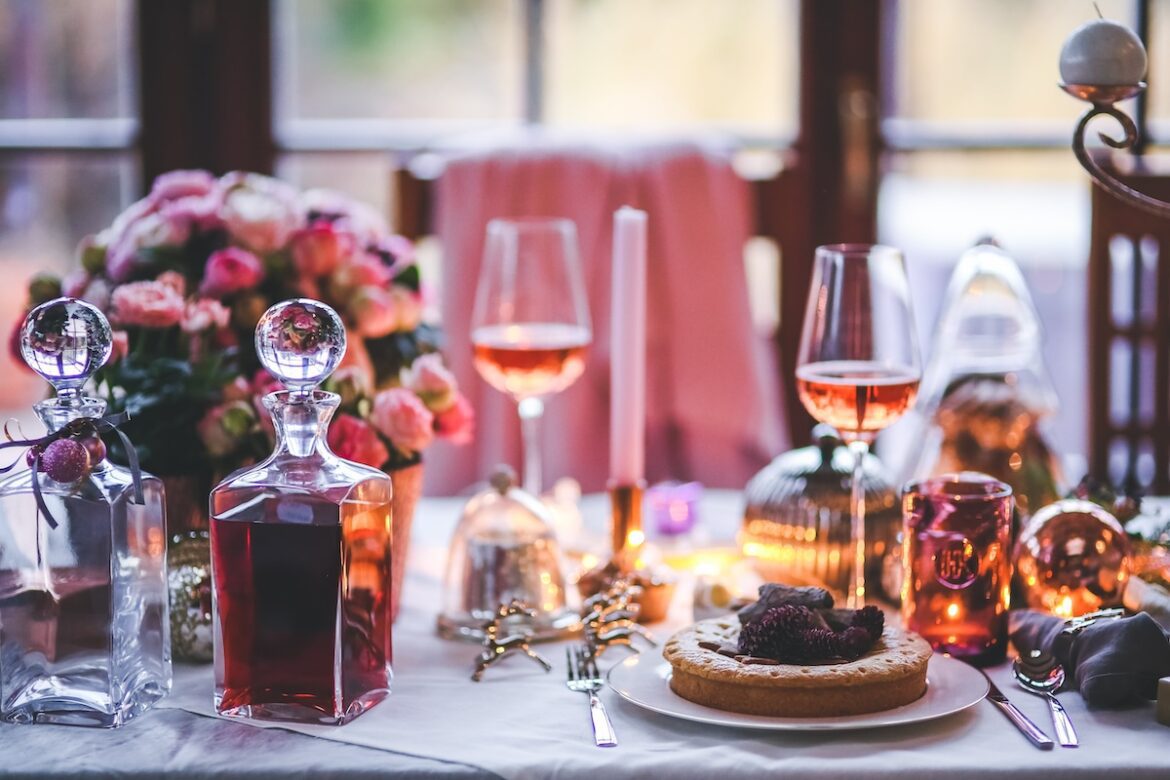It is, as Noddy Holder likes to say, Christmaaaaaaaaaaaaaaaaaaaaaas. Which means it’s time for the Bespoke Black Book Christmas Drinks Guide!
These are, of course, interesting times, in the most euphemistic, challenging, ancient curse sense. While Christmas is often an excuse for excess, the cost of living being what it is currently, the mission here is one of quality, rather than quantity, an attempt to whittle it all down to a few choice items – while, ironically, drinking excessively in the name of research – so that, should you choose to, you can drink better, not more. And, along the way, perhaps introduce you to a few gems you (and I) haven’t come across before. So, charge your glasses, pray for my liver and let’s dive right on in…
Whisky Drinks For Christmas
Meikle Tòir is a new one on me, but: a) that’s not so surprising as they’ve only been on the scene for five years; and b) are a relatively tiny side project (100,000 litres each year) of the GlenAllachie Distillery. The name translates as ‘big pursuit’ and they’ve got a point: they’re making peated single malt, Speyside whisky. There are four releases: The Original (matured in first fill bourbon barrels, rye barrels and American virgin oak casks); The Sherry One (ex-bourbon barrel, followed by Pedro Ximenez and Oloroso puncheons); The Chinquapin One (again, ex-bourbon, then Chinquapin virgin oak barrels for three years); and The Turbo (American virgin oak and Oloroso casks). The peat is neatly handled – Laphroaig lovers probably need not apply – a warming note rather than intense smoke, although the Turbo, as you’d expect, ups that considerably. For me, the Sherry One is the overall winner – light smoke, that Speyside heathery quality, honey richness, cinnamon – but they’re all worth seeking out. Coming in around £50 a bottle, they’re punching well above their weight.
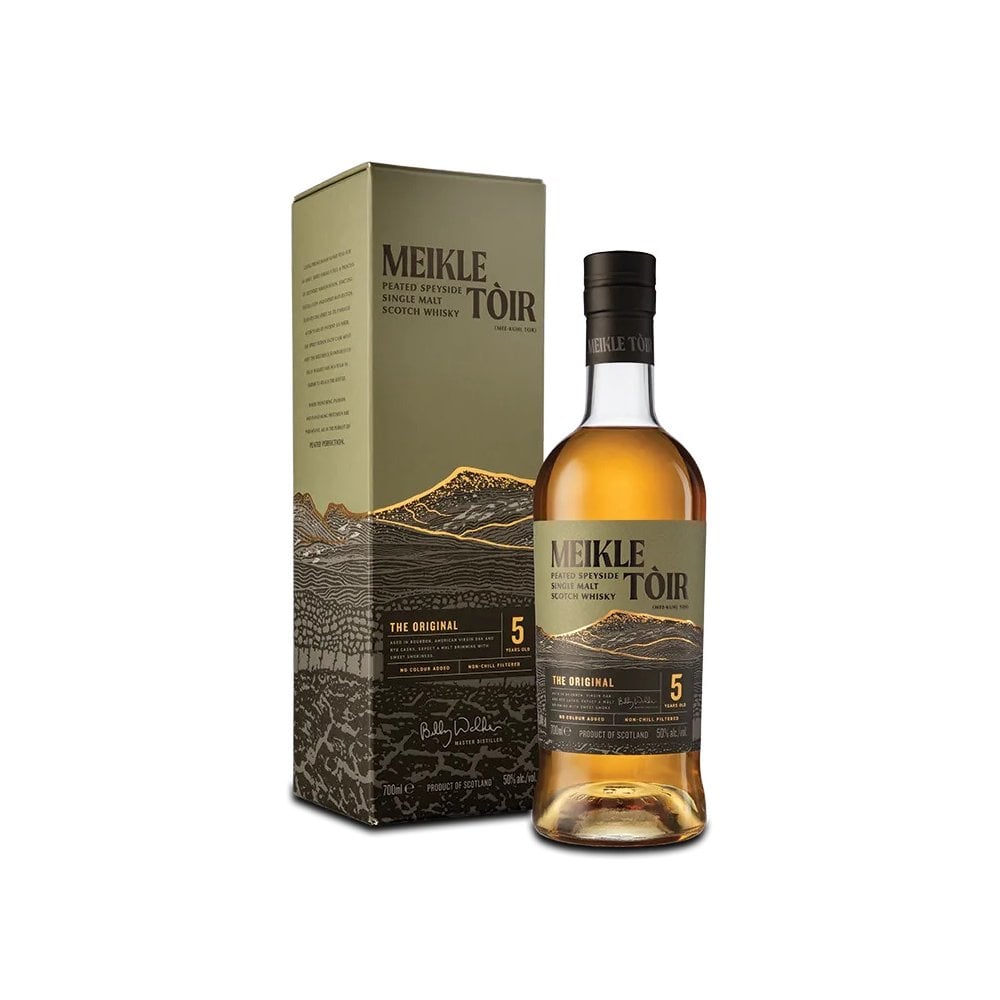
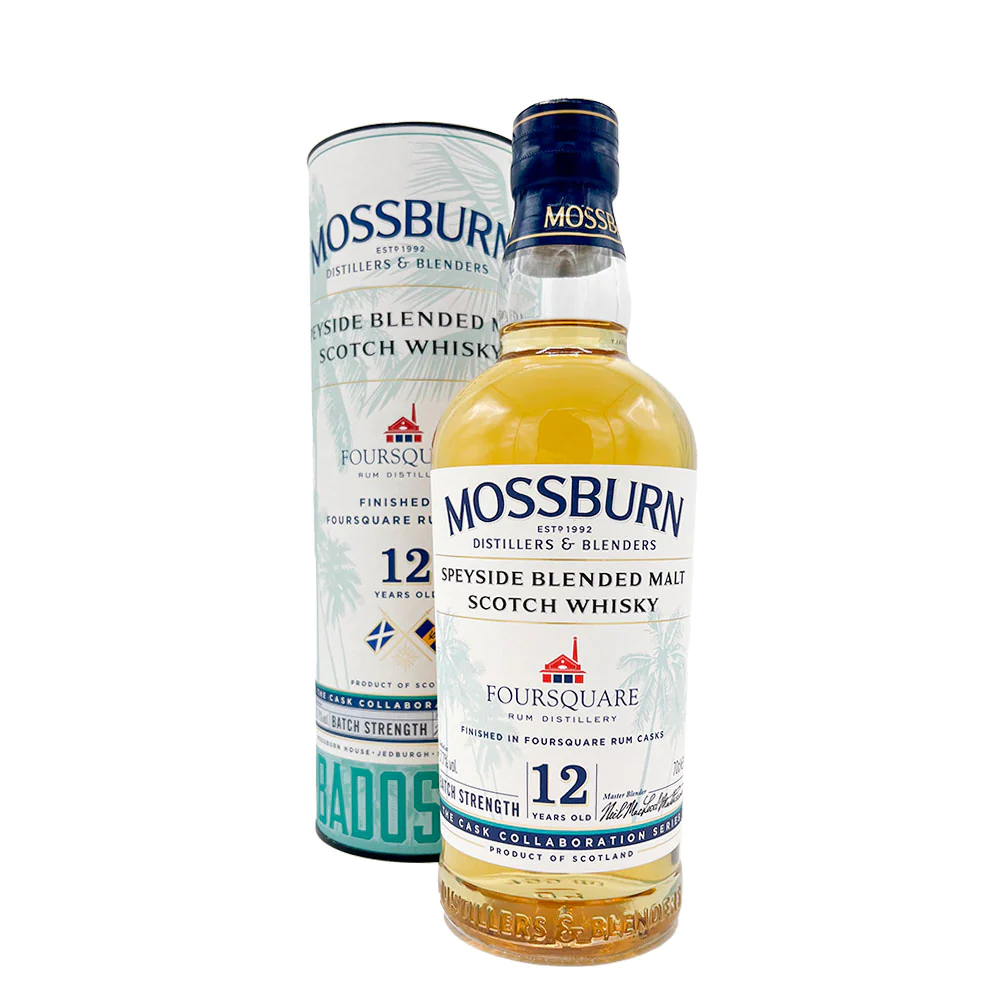
On the subject of Speyside, Mossburn 12 Year Old Speyside Blended Malt is also worth a look. The improvement in blended whiskies over the last few years is noticeable and this is a cracker. It’s part of Mossburn’s Cask Collaboration Series, this time with ex-Barbados rum casks from the Foursquare distillery. To my palate/nose, there’s lots of caramel, hints of banana, gentle spicing, a little vanilla… It’s a highly enjoyable, crowd-pleasing dram. Expect to pay around £65.
And on the subject of blending… Chiswick-based Compass Box have been doing great things to whisky for the last 20 years or so. They’ve also helped remove some of that stigma around blending, having created some remarkable liquids over those two decades. They’ve released an excellent value Blenders’ Collection Box (£25) containing three 15cl bottles of some of their core range: Glasgow Blend, the delightfully fruit-forward Orchard House and the now legendary Hedonism.
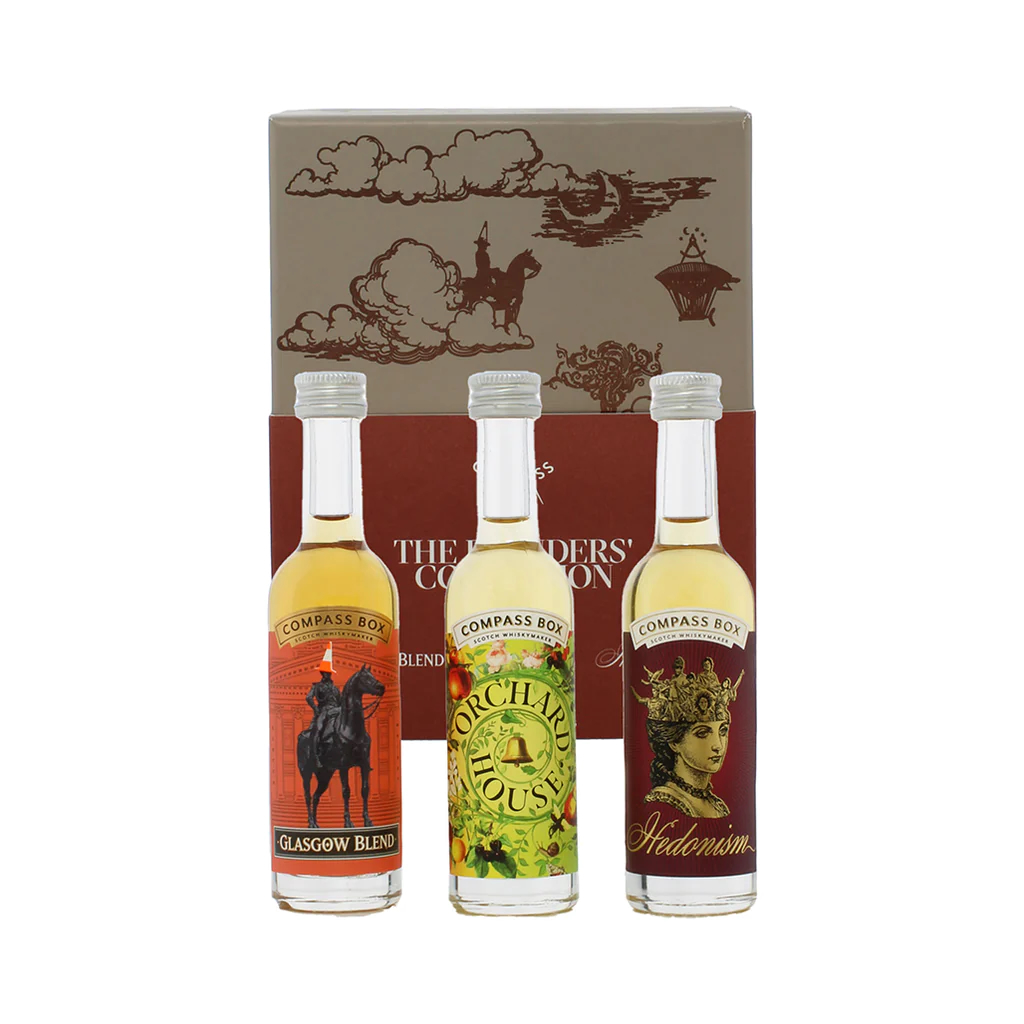
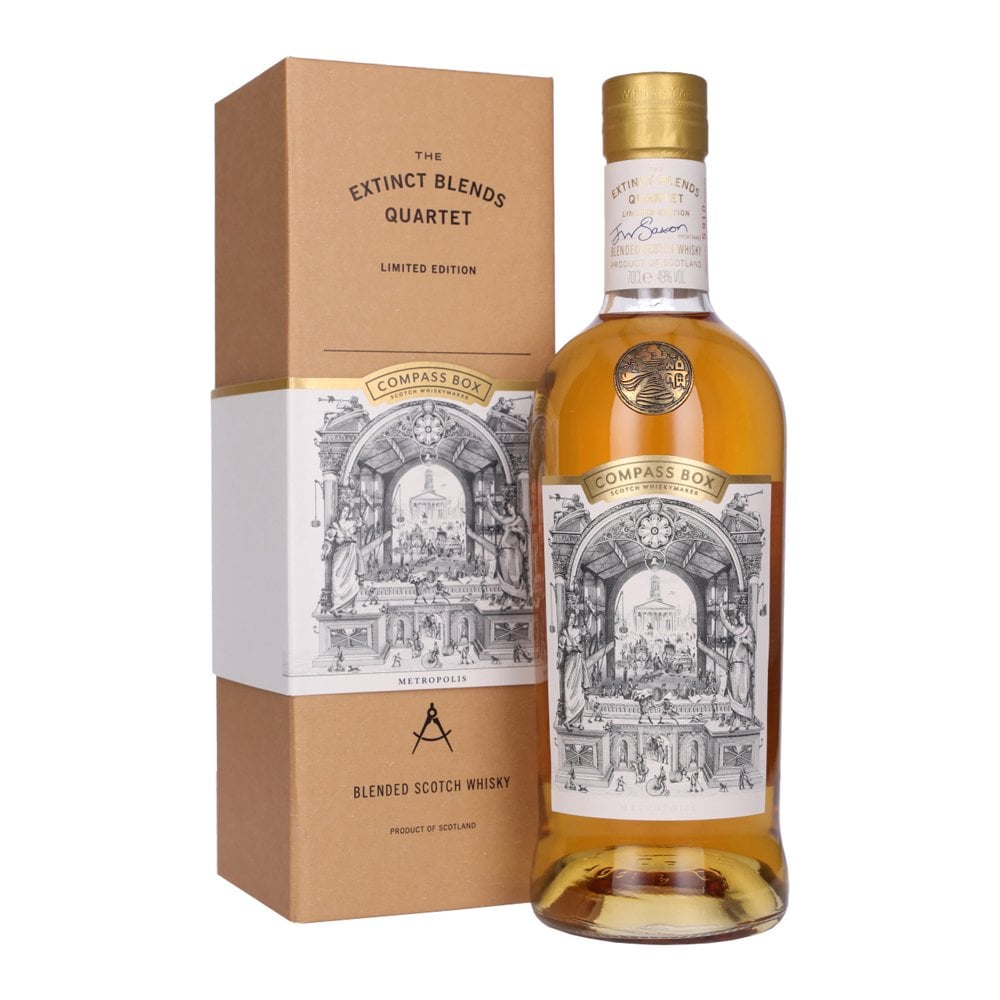
Should you be after something a little more elaborate – or collectible – for yourself or a whisky-loving friend or relative, Compass Box have also released Metropolis, the third whisky in its The Extinct Quartet range, of blends inspired by the whiskies of yesteryear. As the name suggests, Metropolis is a tribute to blended whisky’s industrial roots, and the cities that are the birthplace of the spirit that conquered the world.
Compass Box being Compass Box that also comes with a full breakdown of the recipe: 25.8% blended malt Scotch whisky aged in a refill sherry butt, 25.1% Aberlour single malt aged in a re-charred American oak barrel, 20.5% blended grain parcel aged in refill bourbon barrels, 16.6% Miltonduff single malt aged in first-fill bourbon barrels, 7.1% Bowmore single malt aged in a refill bourbon barrel, and 4.9% blended Scotch parcel aged primarily in first-fill bourbon barrel. The liquid is a straw-coloured bomb of sweet things, from sun-dried fruits to (appropriately) Scottish tablet, and with a lingering apricot note on the finish. There are just under 6,000 bottles available which perhaps explains the £265 price tag…
If your budget doesn’t quite run to that level but you’ve got a whisky-lover to buy for this Christmas, take a look at whisky-me.com. It’s a rather neat subscription service where the recipient will be sent a 60ml pouch of whisky every month, plus tasting notes on an explanatory card. The Traditional option covers the best of Scottish single malts, the Discovery option covers the best whiskies from around the world, and the Adventure option secures you one of each every month. Prices start at £53.70 for a six-month Traditional / Discovery membership, up to £192 for a 12-month Adventure subscription.
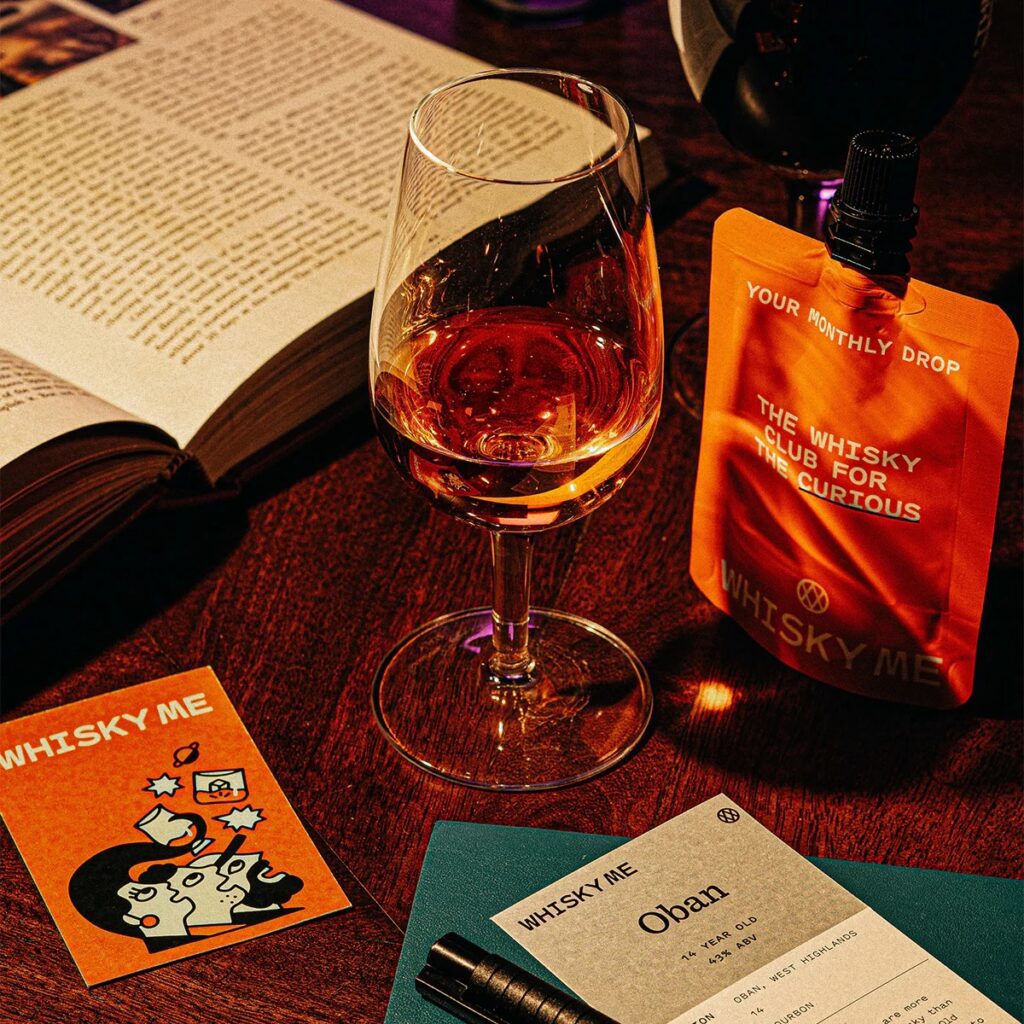
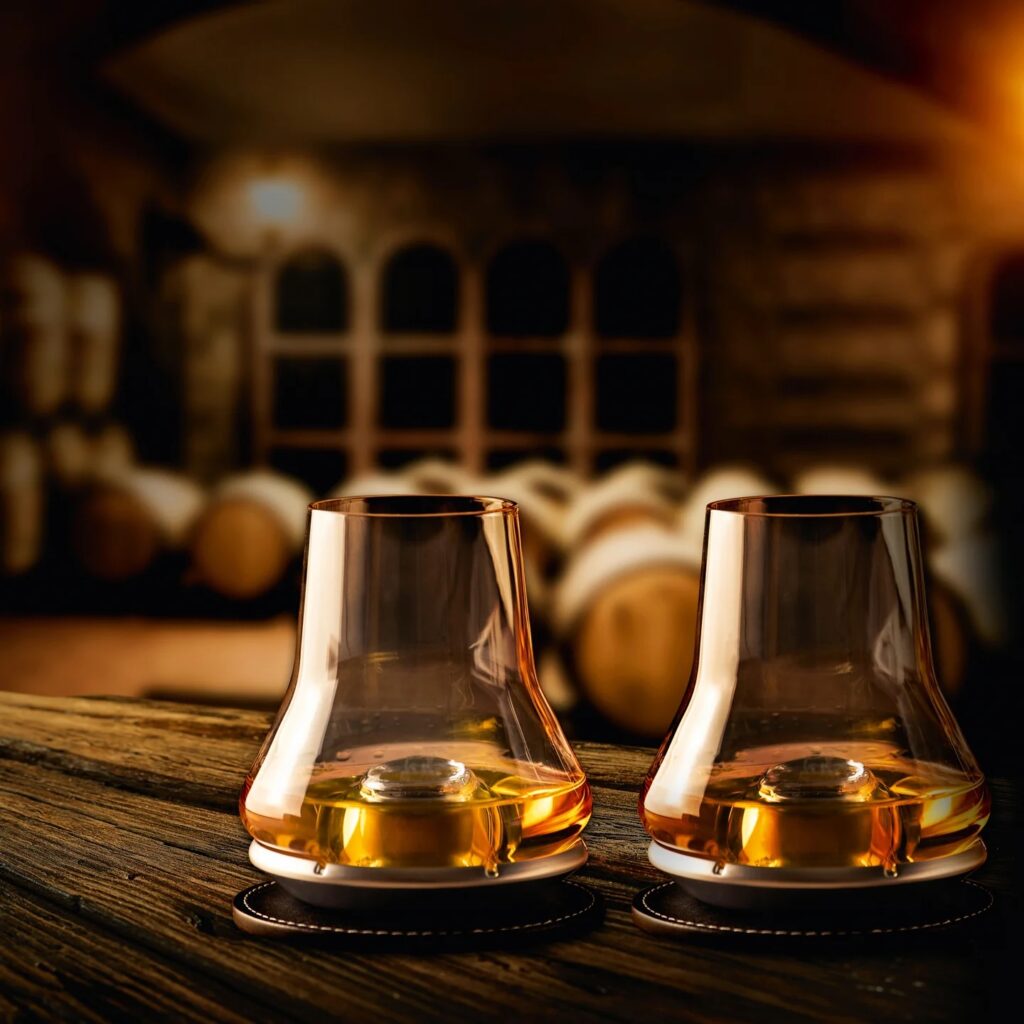
And, while we’re talking pure presents, rather than brown liquid, the Peugeot whisky-tasting glass (from uk.peugeot-saveurs.com among other outlets) makes a great gift for a whisky-loving friend or relative. Or, indeed, a cognac, brandy, or Armagnac-loving friend. Put the cooling base in the freezer for a couple of hours, place under the glass and pour. Leave for a couple of minutes – they even include a branded leather mat for this very purpose – and your dram will be chilled to between 5 and 8 degrees, while the shape of the glass opens up the aromas… Does it make a difference? Actually, yes, it does. Plus, you know, sometimes a little ceremony is good.
Right. Back to the stuff you’d add to the glass. Torabhaig is yet another new distillery in Scotland – seriously, are they opening a new one weekly? – but only the second licenced distillery on Skye. They’ve just released a “batch strength” edition of the Torabhaig Allt Gleann, and that extra heft – 61.1% – is a fine addition for those who like their whiskies with smoke, spice and a little hint of the ocean: Talisker-drinkers, I’m looking at you…
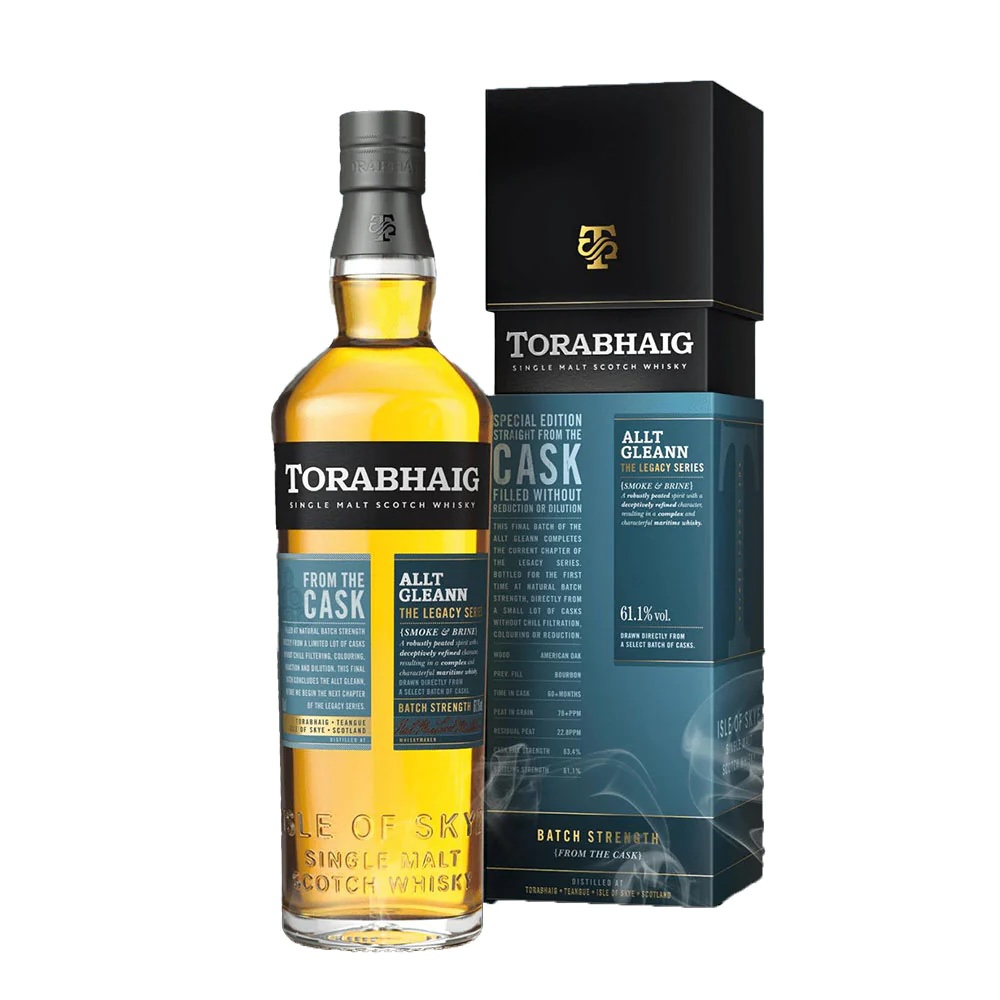
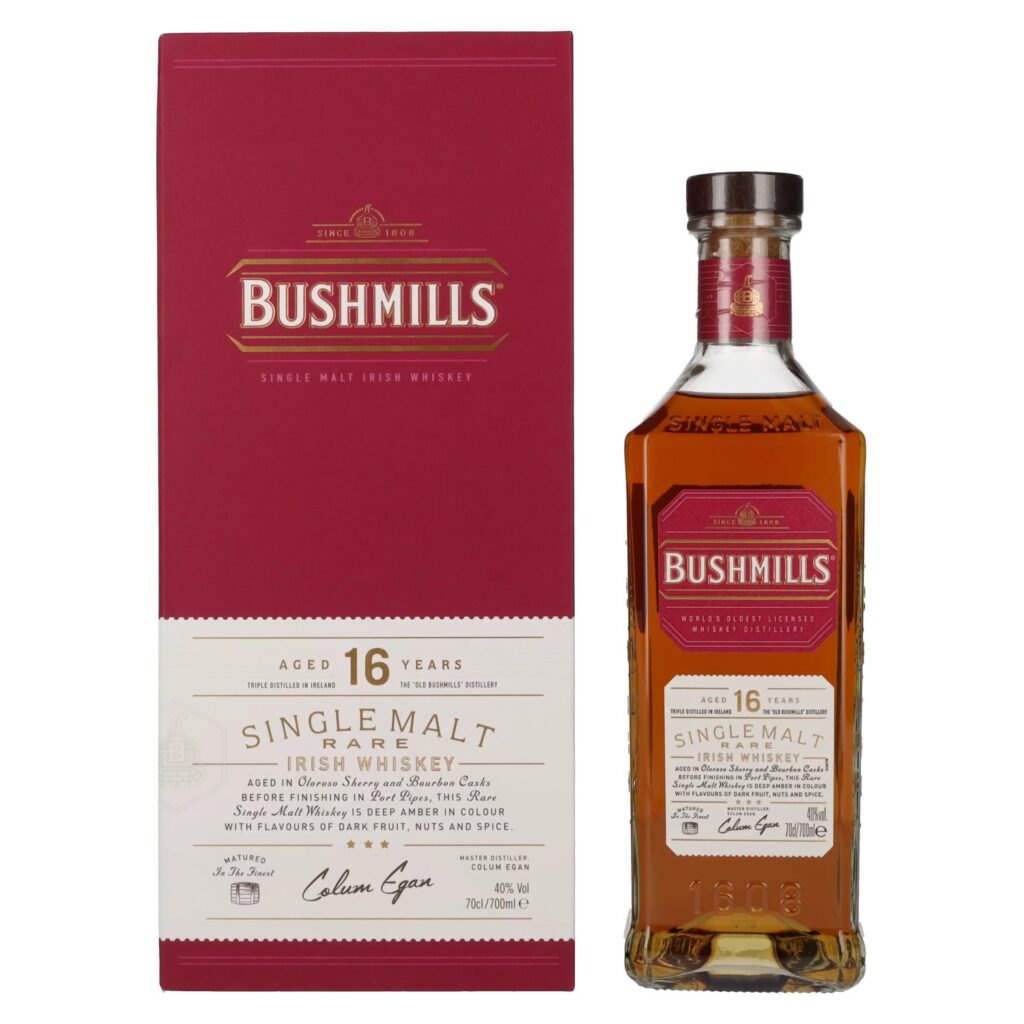
As we did in the previous Burns Night whisky guide, there comes a time when we have to head west and add an “e”… And we shall start again with the ever-dependable Bushmills. Flavour profiles for their blends are textbook, smoothness is a given (even by multi-distilled Irish standards), and the value is excellent. As for the single malt varieties… the Bushmills 16 (RRP £90) is port-pipe finished (plus bourbon, plus sherry) which gives it great depths of fruit and spice, and the finish – for me – was that pure honey sweetness I often associate with Irish whiskies. This. Slice of Christmas cake. Sorted.
From the newer end of the Irish whiskey market comes Micil Inverin Small Batch Blended Whiskey (c. £45). Well, I say “new” – the distillery opened in 2017 – but the influence goes back 170 years to the founder’s great-great-great grandfather Micil Mac Chearra, who began distilling poitín in 1848 on a Connemara hillside. This fruity, spicy, smoky whiskey is matured in ex-bourbon casks, before being finished in a combination of ex-bourbon quarter casks, Pedro Ximenez casks and peated poitín octaves.
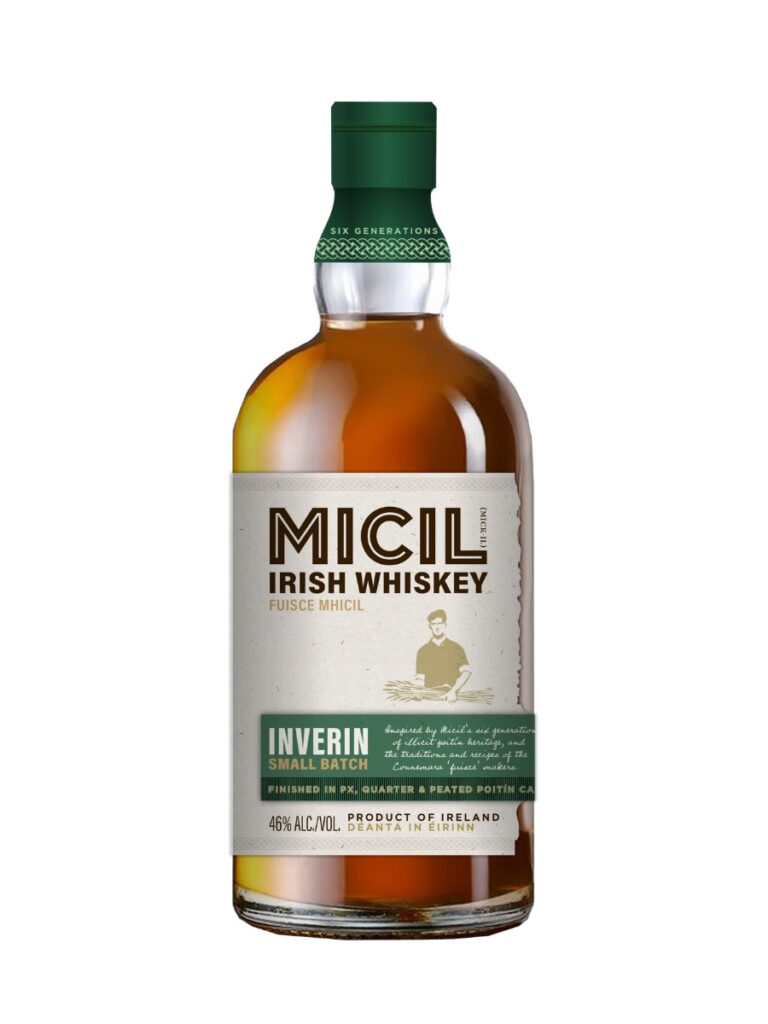
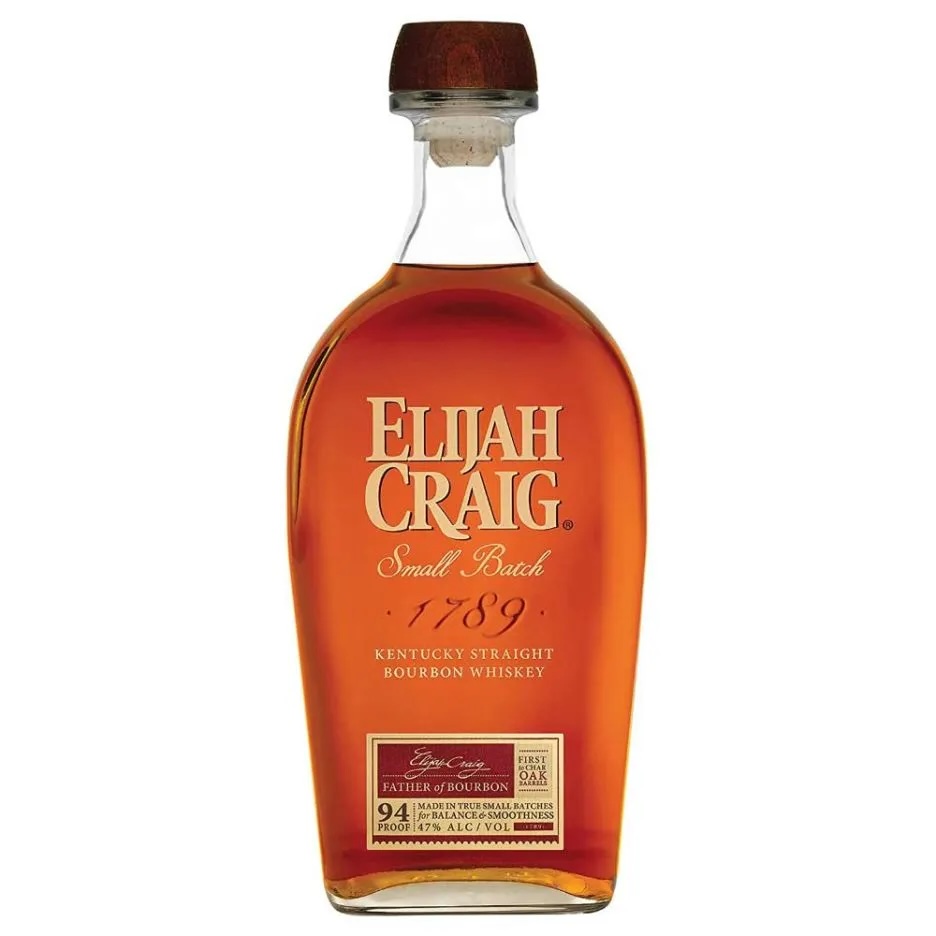
And to finish the “brown water” section of this piece, a couple of global entries. While single malt whisky will always be my first love, sometimes you just want something more straightforward and, perhaps, accessible. I mean, I’ll happily do the strokey beard / “I’m getting vanilla and fig and a hint of farmyard” thing with the best of them but, sometimes, you don’t want to think about it that much, do you? And that, for me, sends me west to the US and the likes of Four Roses and Woodford Reserve or, increasingly, Elijah Craig. The latter’s Small Batch 94 proof can often be found for under £40 and that’s a whole lot of smooth, vanilla-heavy, caramel-laced for the money.
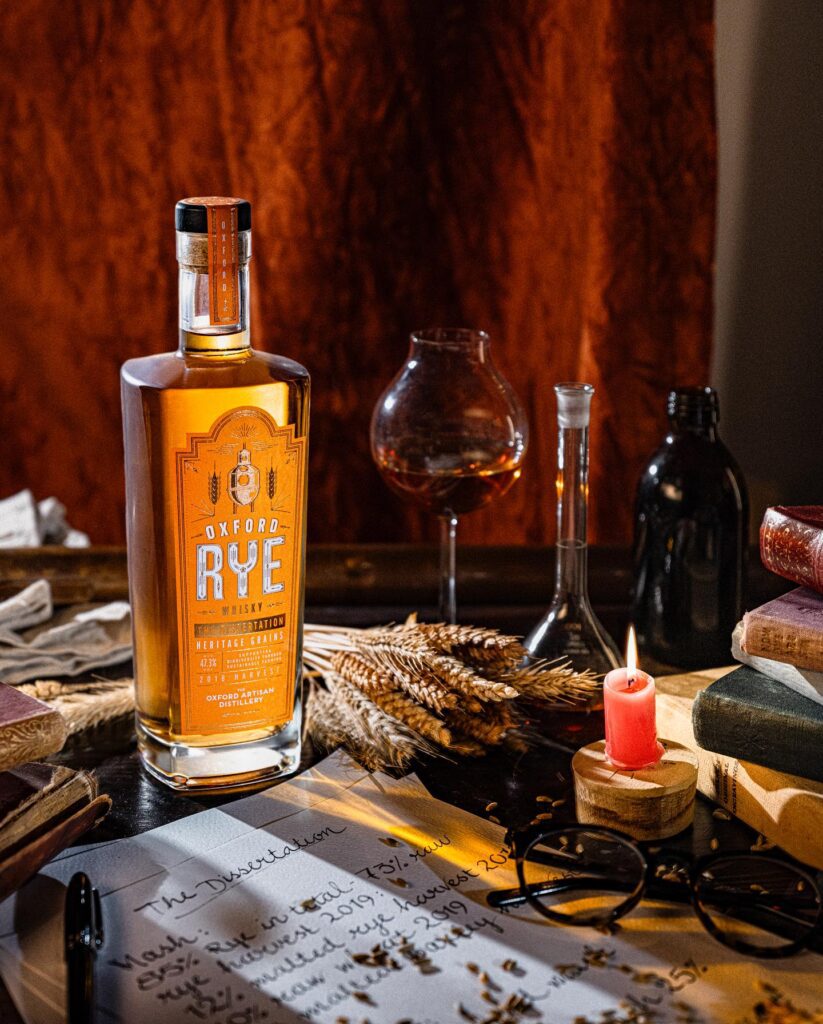
English whisky too is on the up. There’s some very good liquid being produced by the likes of The Lakes Distillery and Filey Bay. I’m now adding The Oxford Artisan Distillery to that list. The Oxford Rye The Dissertation (c. £97) is light, and fragrant, with the sweetness you’d expect with rye, and a fine flourish of tropical fruits and nuts. This one’s coming out for the Christmas pudding, assuming it lasts that long.
Spirit Drinks for Christmas
On the subject of English surprises, may I present Burnt Faith? Walthamstow isn’t the obvious place to find brandy but it’s a brave new world out there, people… To be fair, the postcode doesn’t much matter, as this is made from eaux-de-vie distilled in France, aged in E17 in a mixture of Spanish brandy, bourbon, Pineau des Charentes and cherry liqueur casks. It’s genuinely delightful, a bargain (roughly £37), smooth, caramel-heavy…
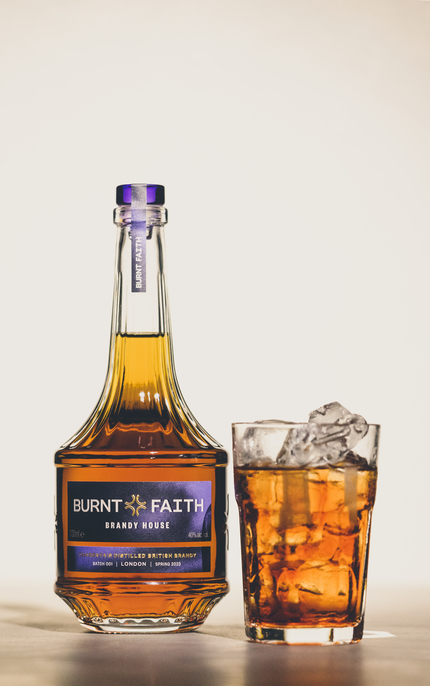
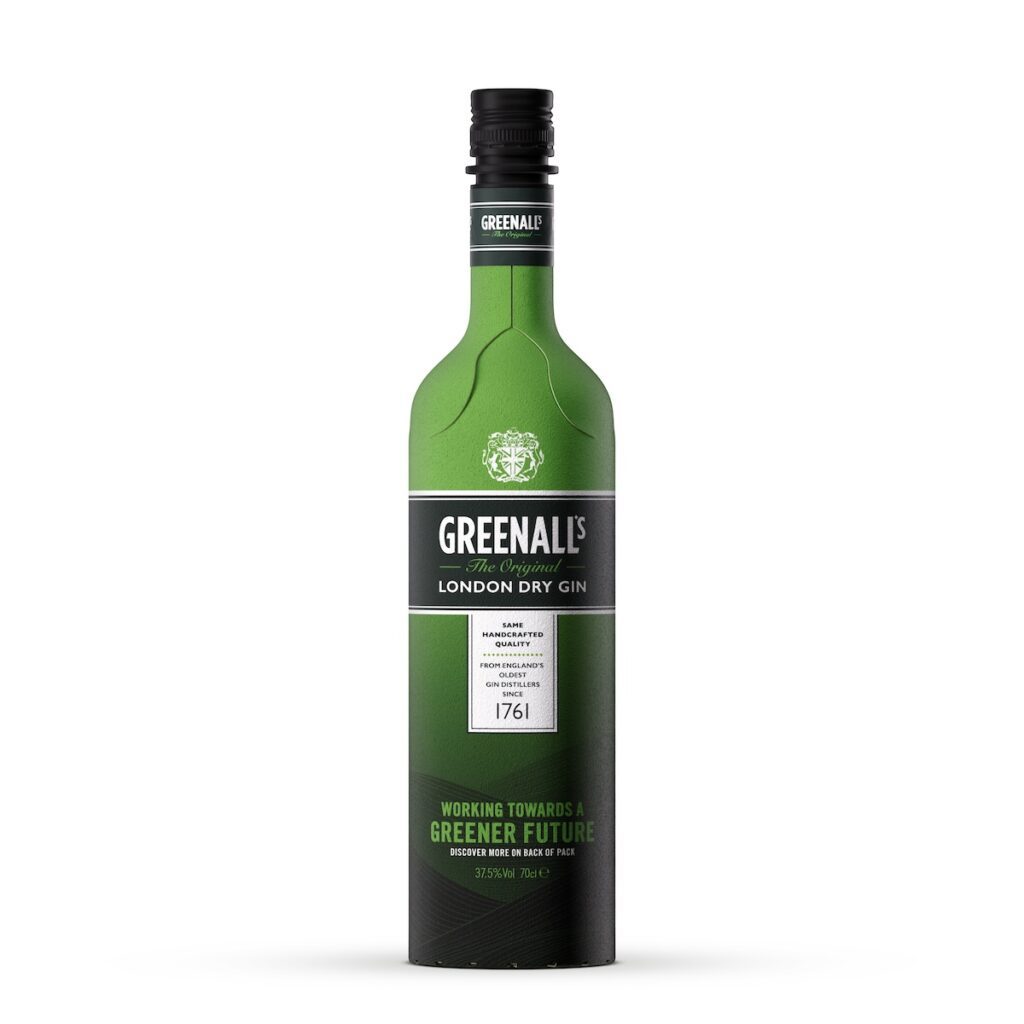
For something more conventionally English, we have to talk gin, don’t we? Aside from flavoured gins – most of which are awful but please do prove me wrong – the most innovative thing I’ve seen recently is Greenall’s new paper bottling. No. You read that correctly. The oldest gin distillers in England are now setting the green standard, running on 100% renewable energy from offshore wind farms, recycling 100% of waste and now offering their original Greenall’s London Dry Gin in their trademarked Frugal Bottle, which reduces the weight, carbon footprint and water usage by more than 75%. It’s also reflected in the price, so you can expect to find this properly old-school, juniper-forward gin for under £20 a bottle.
In recent years, I’ve found myself going ever more classic when it comes to gin. Forget the exotic botanicals, let it taste of juniper, work in a Martini and not need some flavoured tonic and/or a bit of salad dropped in the glass. And then along comes Bombay Sapphire Premier Cru Murcian Lemon (around £35) to make me rethink that a little. There’s a lovely burst of citrus to this and it’s one of many, many good reasons to take a look at thebottleclub.com, an online retailer that’s new to me but is now firmly logged as a favourite.
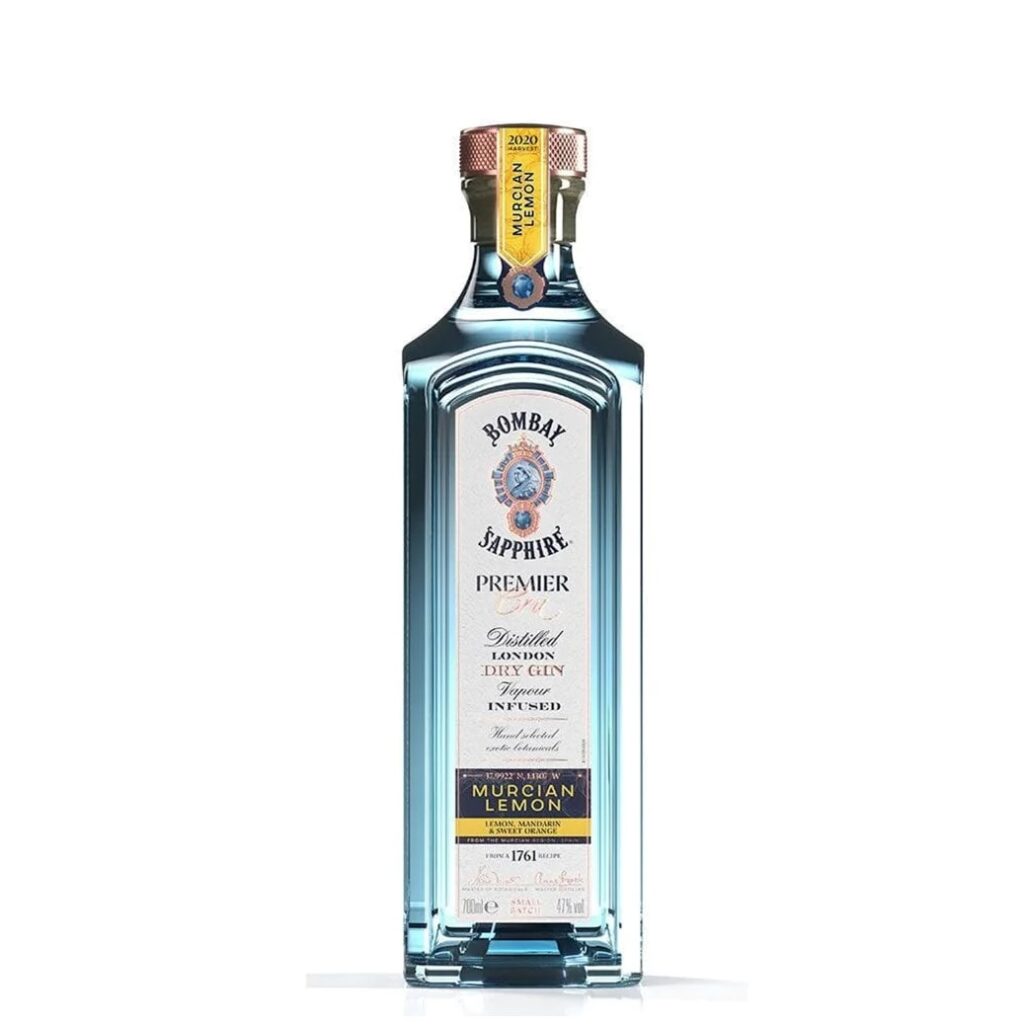
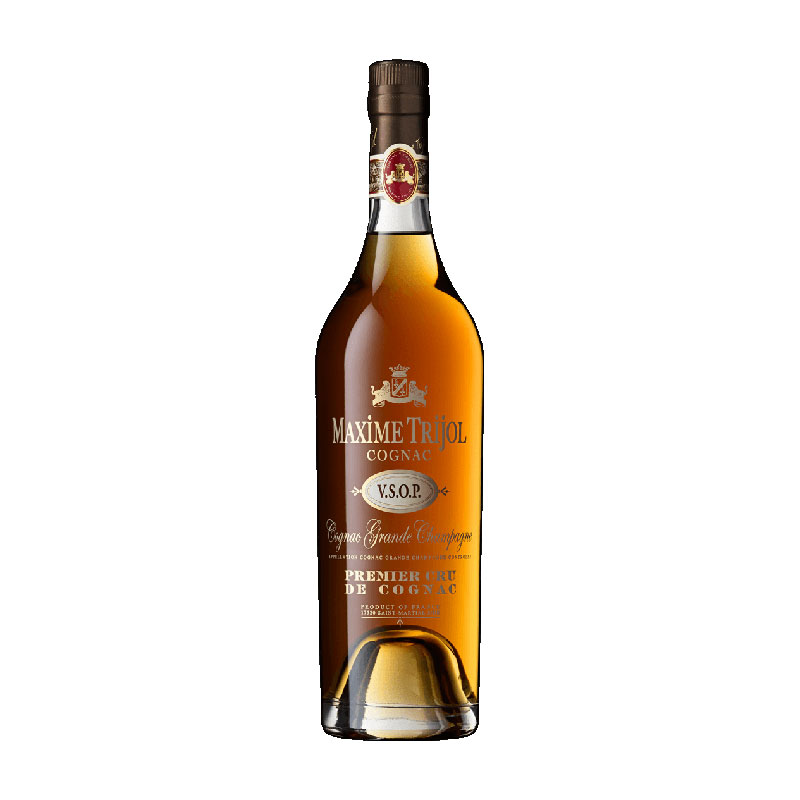
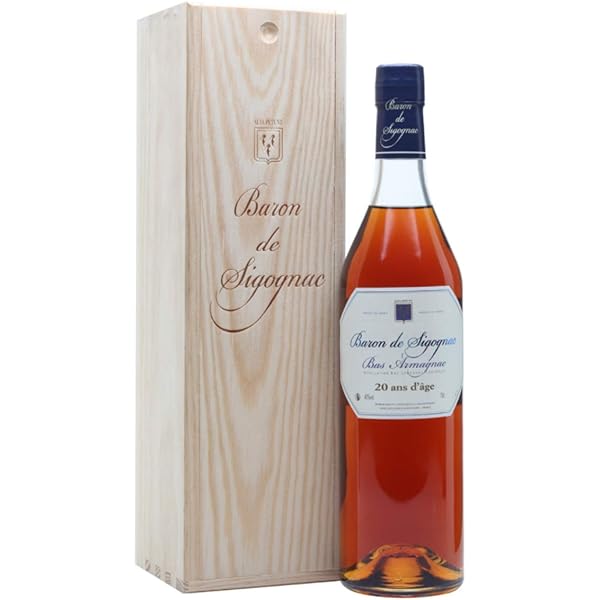
It’s not Christmas without a little Cognac or Armagnac so we’ve found one of each for your consideration. For the former, Maxime Trijol VSOP Grande Champagne (c.£65) is an approachable cognac, that’s exceptionally smooth, with a little orange and spice on the finish. In a similar vein is Baron de Sigognac Bas Armagnac 10 Years Old (c. £50), a soothing, amber liquid with – again, this is all my perception! – orange and vanilla in spades and a gentle nuttiness on its lingering finish.
Sparkling Drinks for Christmas
It’s not Christmas without a few bubbles, of course. Since visiting their impressive cellars a few years ago, I’ve been a fan of Champagne Pommery Brut Royal. It’s textbook stuff that ticks all the relevant boxes – the hint of fruit, a hint of brioche – in a beautifully balanced manner and, because it’s still mostly under the radar, you’re not paying over the odds to cover their marketing bill. This typically comes in around the £40 mark, and can often be found below that.
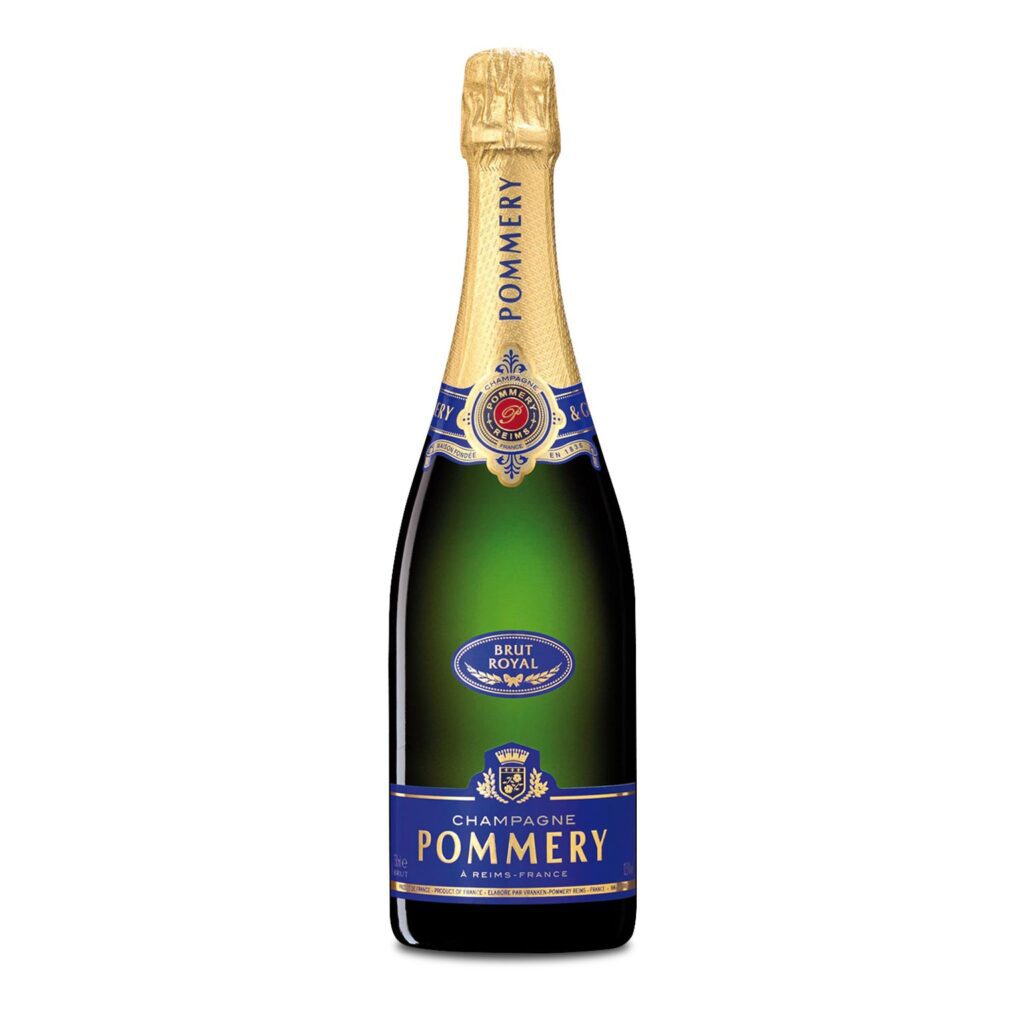
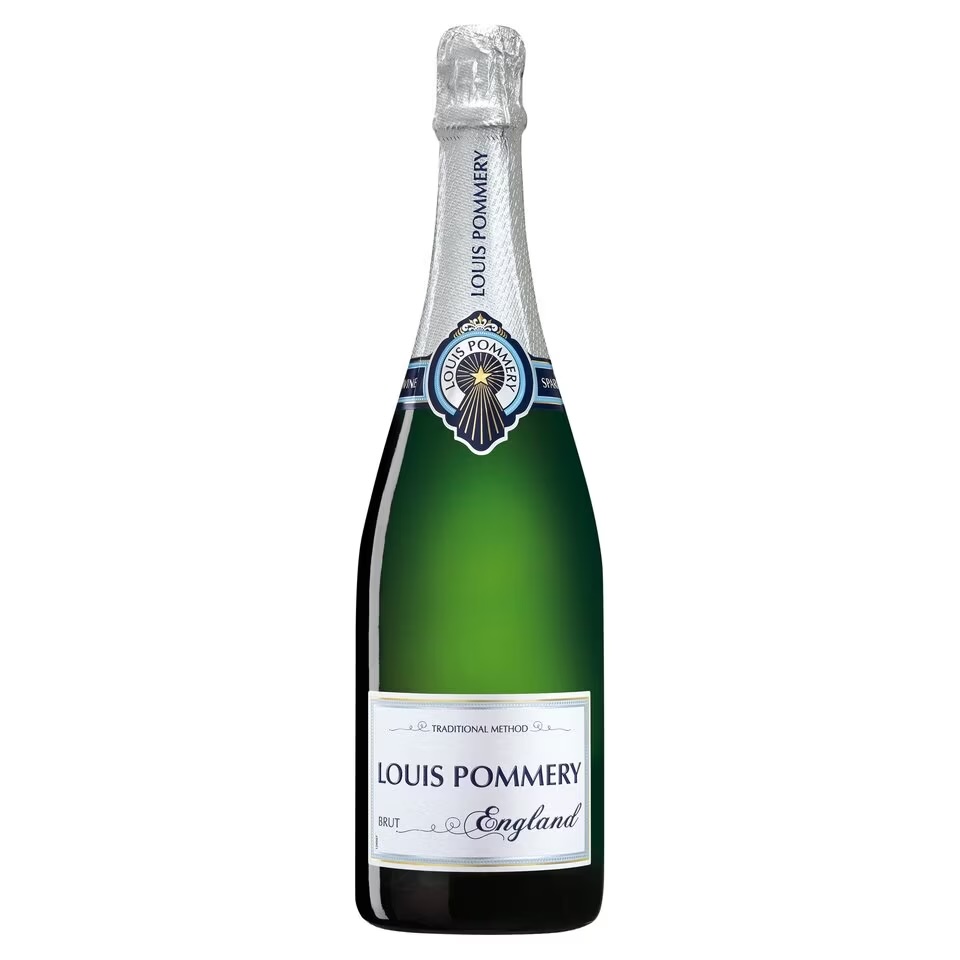
As you all know, British sparkling wines are some of the finest in the world these days and, continuing the above theme, Louis Pommery is a fine combination of English grapes and French know-how. Again, it’s a relevant bargain – around the £30 mark – and does everything you could possibly want from a bubbly. This would definitely improve your Christmas morning.
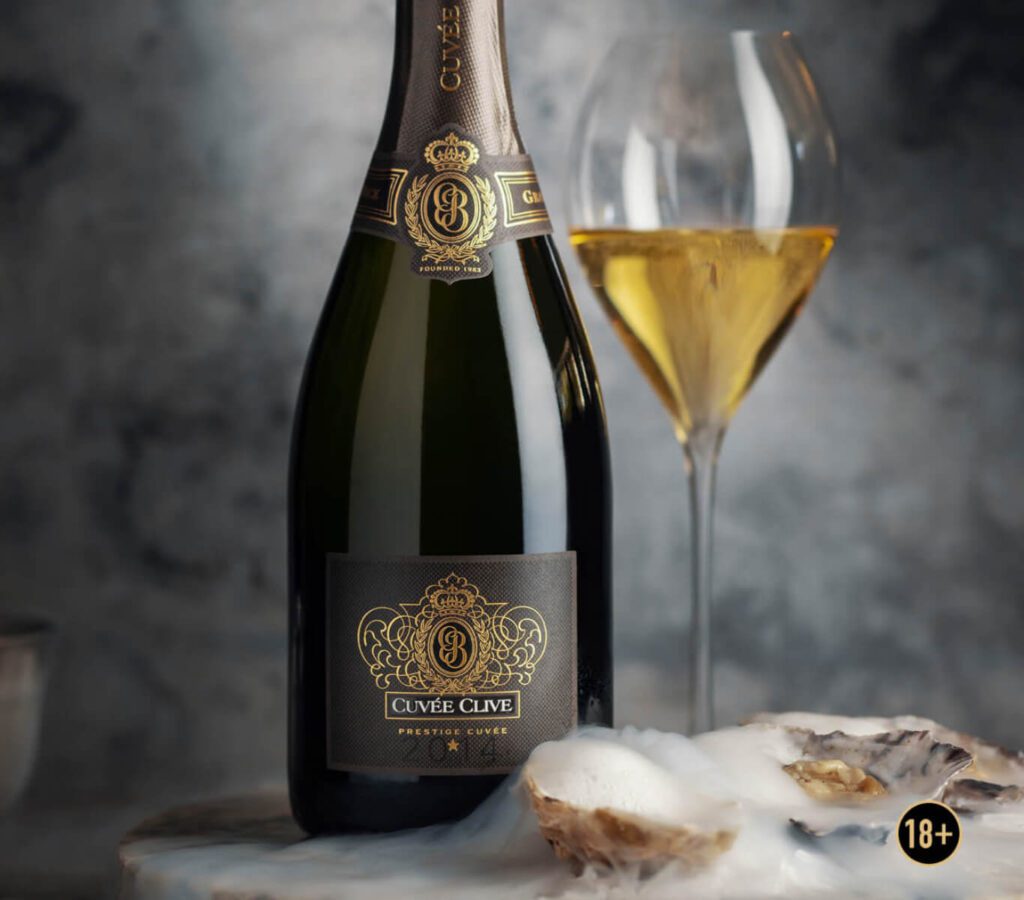
From South Africa comes the Cuvee Clive (RRP £50) and… well, I’m running out of ways to say this. It’s a lovely drop, ticks all my boxes, has that lovely toasted quality, lots of fruit, and is positively effervescent. This and Eggs Benedict? Perfect. This and a mince pie and the presents? Smashing. This and a little smoked fish starter? Well, you get my point.
Terrible bottomless brunches have done almost as much harm to Prosecco’s reputation as they have to the livers of the people who regularly go to terrible bottomless brunches. The stuff they pour there is awful. Sugary, sickly, cheaply produced fizz that will leave you with a mid-afternoon energy slump AND a terrible hangover. Good Prosecco, on the other hand, is a joy – vibrant, clean and, compared to a lot of champagne, still a relative bargain. Basically what I’m saying is invest £12 or so in a La Gioiosa Gold and realise the difference. It’s well-balanced, fresh and floral on the nose, with hints of pear on the palate, and a surprisingly long finish.
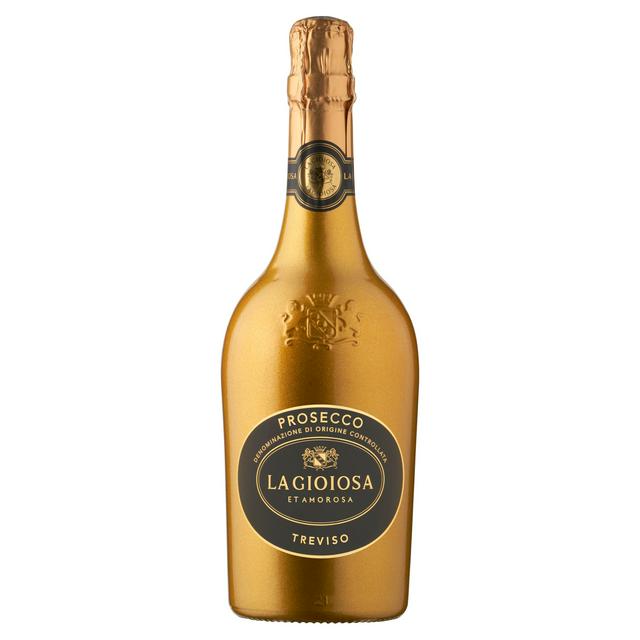
Similarly bubbly but on a very different tip is Real Peony Blush (c. £9), a fermented sparkling tea. That kombucha element gives this some proper body and a mouthfeel that doesn’t make you miss the alcohol. Indeed, pour this, don’t tell people it’s alcohol-free and I very much doubt you’d notice. On the nose and the palate there’s a big hit of summer fruits and you can imagine this in the garden, with a BBQ… but it’ll sit neatly with all sorts of things particularly Boxing Day’s leftovers (or, as my mate Will calls it, “Mayonnaise Day”). If you’re a designated driver at any point between Christmas and New Year’s Eve, this will make you feel you’re not missing out.
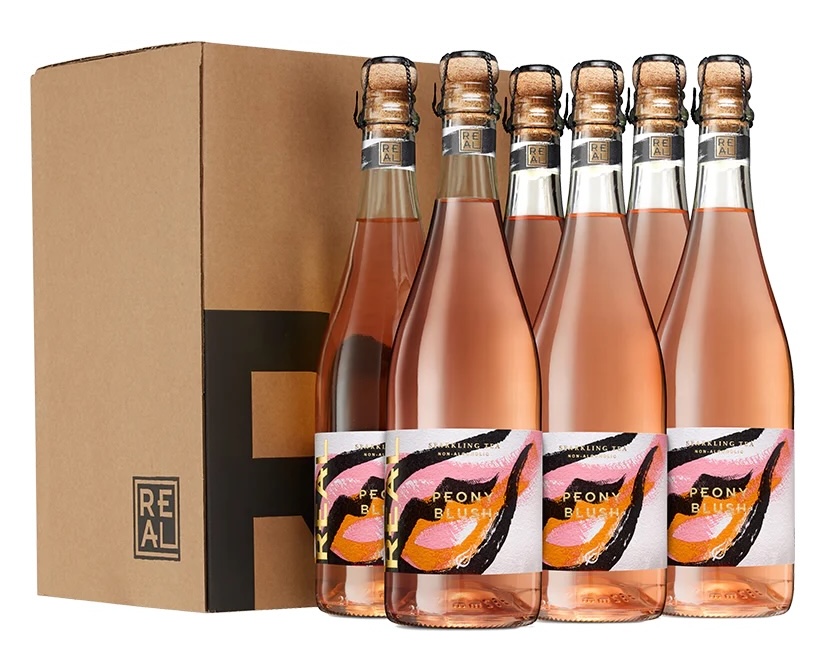
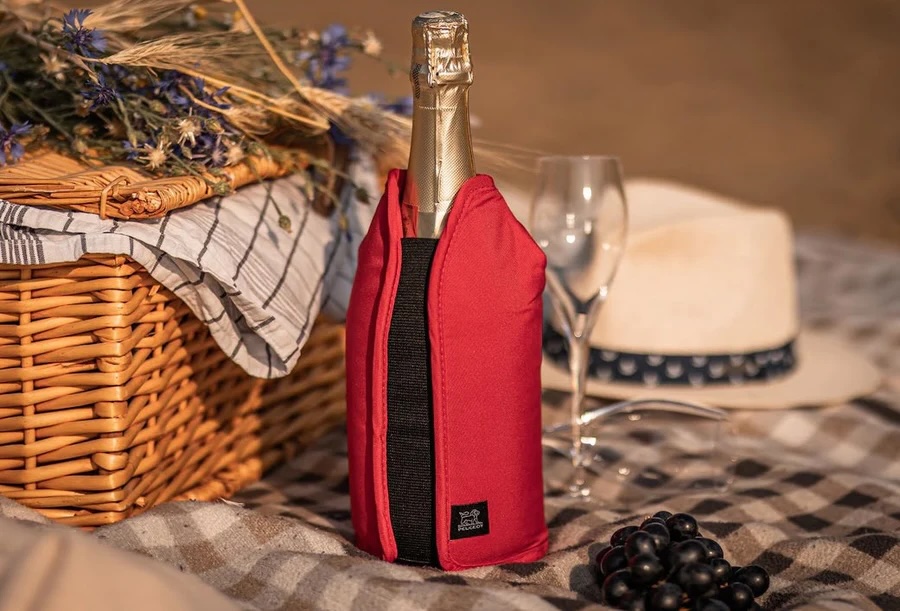
(As a side note / possible gift suggestion, Peugeot also sent over their “Frizz” (£25) an expandable cooler sleeve for sparkling wine which is a very efficient thing indeed. Two hours in the freezer and it’s good to go, capable of cooling bottles in 20 minutes and keeping them chilled for two hours. While most bottles won’t last that long this festive season, for those capable of a more moderate pace, or if you and yours are keen picnic-goers…)
Continuing that “dry” theme, Clean Co. is a new brand on me, but if the Golden Spiced Spirit (RRP £19) is indicative of the range then I may have to explore a little more. It’s billed as their take on rum and, while I may need more convincing of that, with a ginger ale, and a little squeeze of lime, as a long drink over ice it’s a very pleasant alcohol-free tipple.
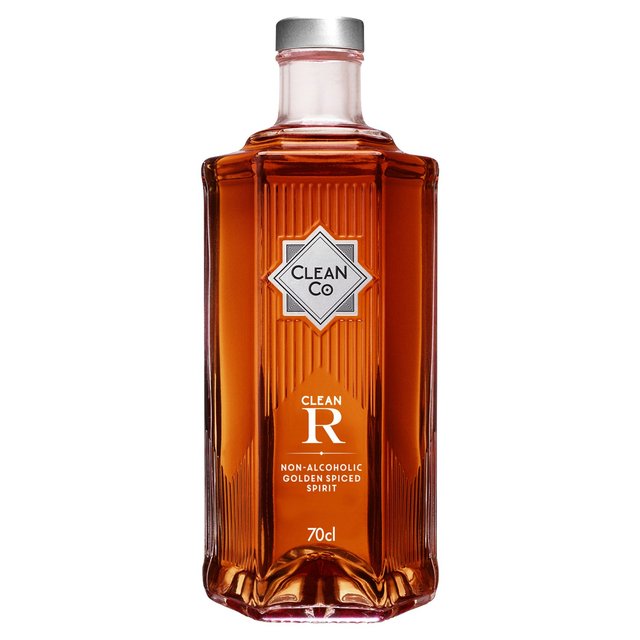
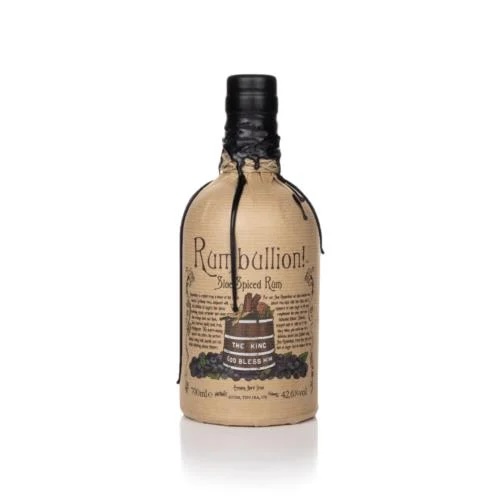
Mind you… While the above is a fine alternative / a lovely designated driver option, along comes Rumbullion Sloe Spiced Rum and, well, whoever said sloes were just for gin? There really aren’t many winter days this wouldn’t make better. Smooth, rich, warming, fruity, it flies solo and makes a lovely long drink with a variety of mixers. Having recently come back from The Abbey Inn, Tommy Banks’ new venture, where the mulled wine comes with a dash of port and Damson Brandy, can’t help but think a little slug of this in the saucepan could take that to a whole new level.
Wine for Christmas
And onto the wines… Illumination Sauvignon Blanc 2022 (RRP £42) is a proper Californian white by Quintessa – 45% Napa, 55% Sonoma, as the label explains – and it’s a knockout. Great structure – you could sit on this for a few years to come – and bright and fruity and floral. I ran this one by a friend who’s a wine buyer and samples a lot of Californian wine and he declared it “spectacular and laughably underpriced” so, you know, you might want to hit up Lay & Wheeler before it’s too late.
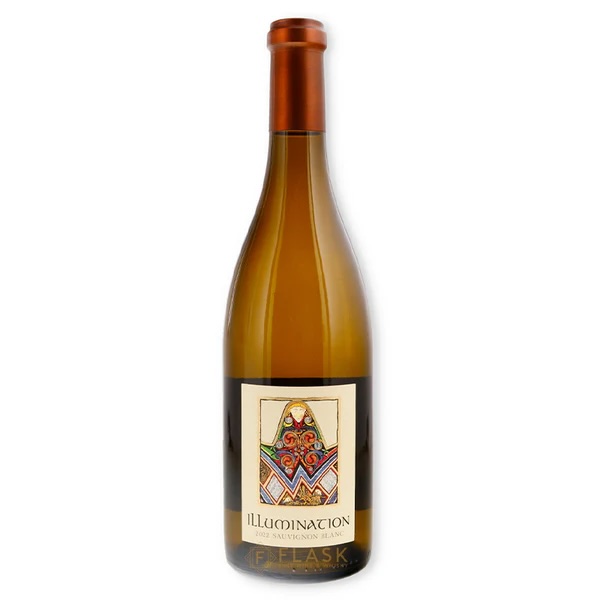
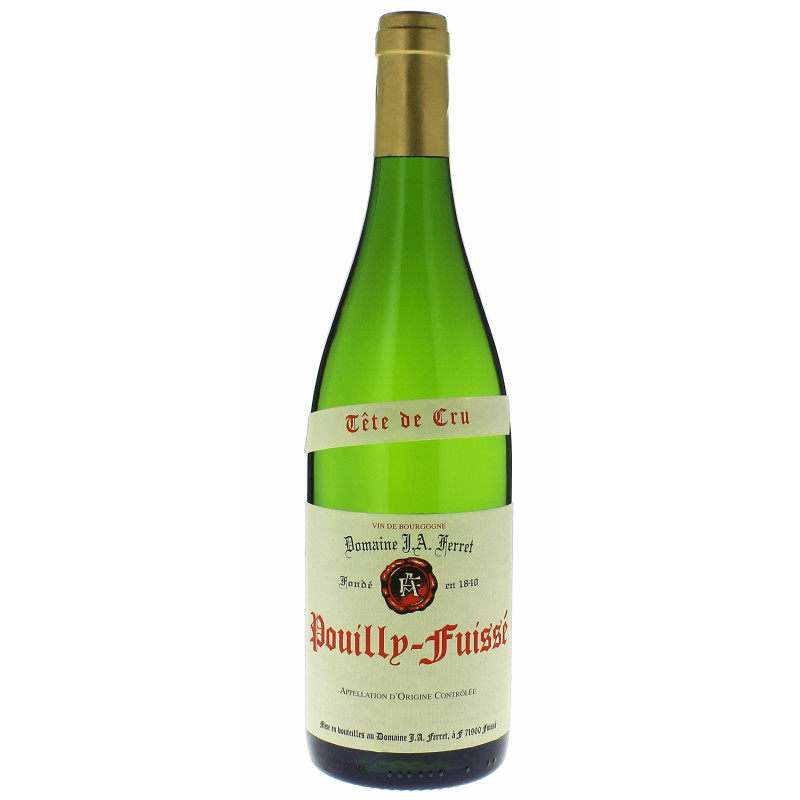
Rivalling that one to accompany Christmas Day’s central protein is Domaine Ferret Pouilly-Fuissé 2021 (RRP £42.70). You’d expect citrus, honey, and a hint of brioche, and you’ll get it in spades, but balanced with a little minerality. It’s dangerously quaffable but rewards slow sipping and contemplation, and if chicken or turkey are at the heart of your celebration, well, you know what to do.
Just to continue that British theme too, multi-award winning Terlingham Vineyard 2022 Bacchus (RRP £22.50) will run you happily from Christmas lunch to cheese and biscuits. It also kicks in at a delightfully light 11.5%, and does all the elderflower-y things one has come to expect from a Bacchus. Indeed, WineGB judges described it as a ‘benchmark Bacchus’ and there’s no argument here.
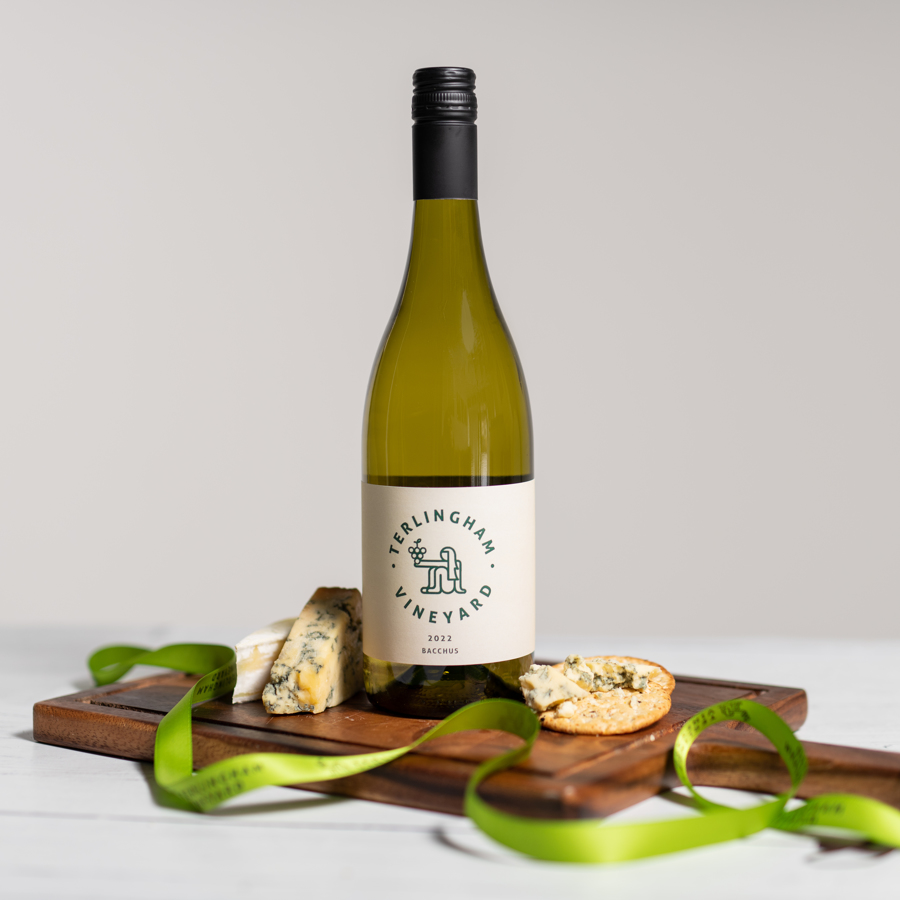
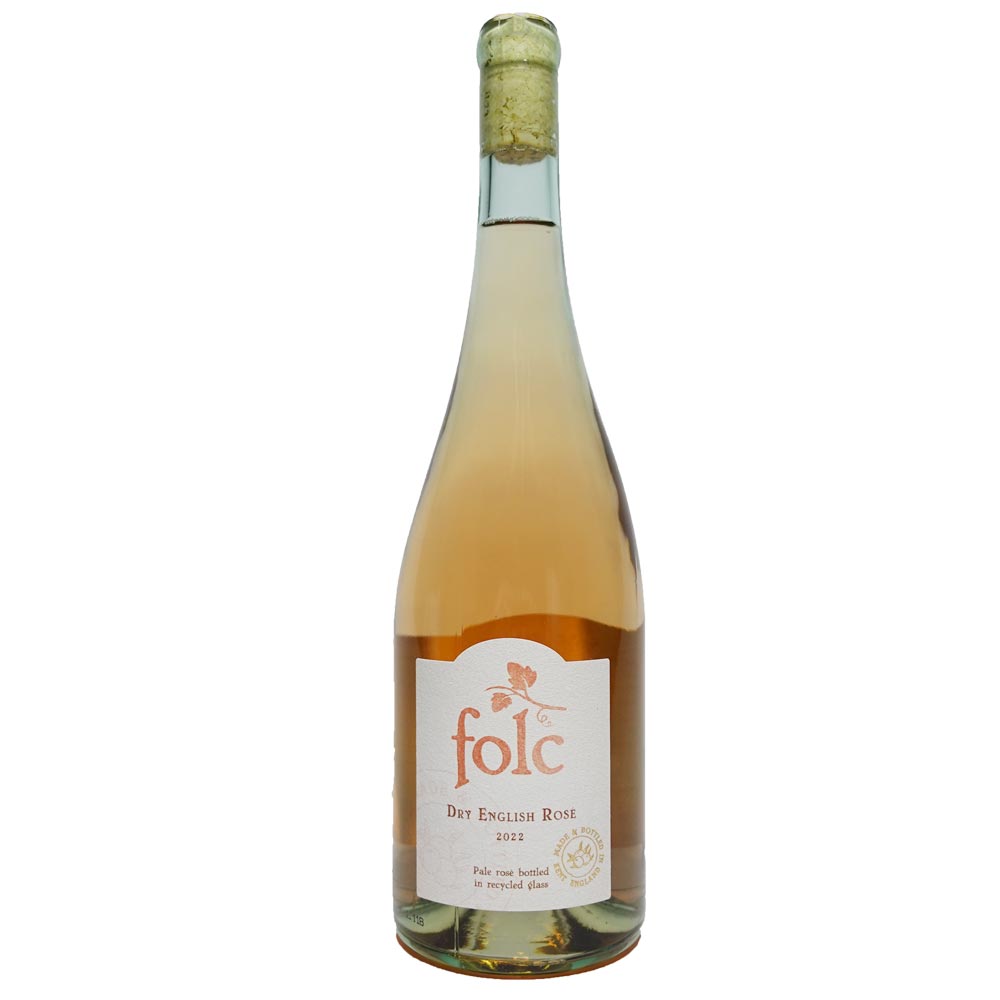
I’ve also been impressed with the folc Dry English Rosé (RRP £19.99). The label promises “an English summer garden… hints of peach, bright raspberry and red apple” which sounds like it’s going to be too sweet but, actually, there’s a crispness here that balances everything very tidily and makes it very versatile.
For something a little different, Amathus shops now stock Macerado del Peru (RRP £41.50), a creation by acclaimed Latin American restaurant COYA and the world’s first bottled Passion Fruit Pisco infusion. For keen home mixologists, this is a versatile bottle of fruity, floral notes, infused with Pisco 1615, from the brand’s long-term distillery partner.
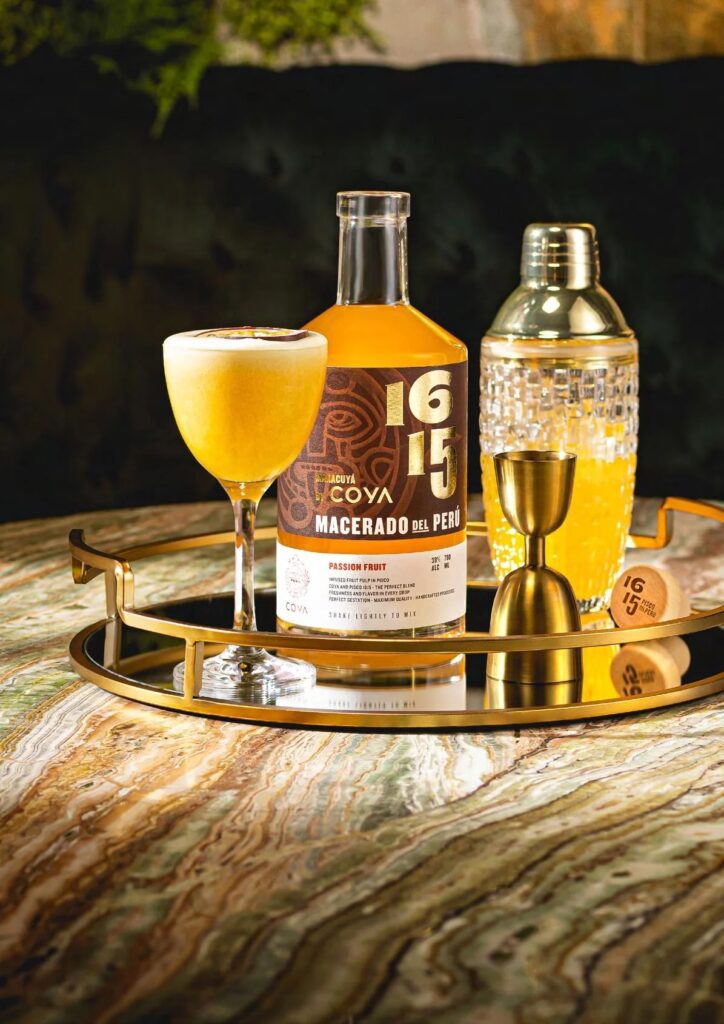
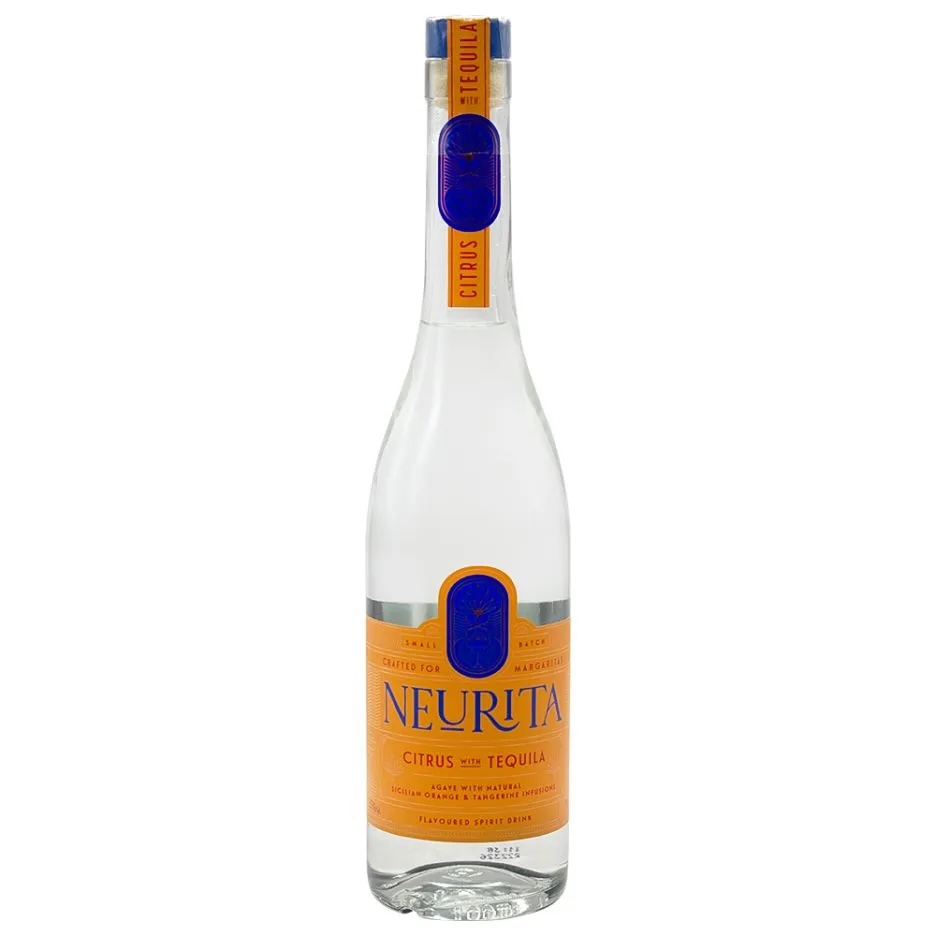
On similar ground comes Neurita “Citrus with Tequila” (£29.99) and, well, if anyone can read that name, the description – infused with tangerine and orange extracts – and not think “Ooh, Margaritas” you’re doing better than me. Or worse, depending on how you look at it. It does, indeed, make a fine marg (and excellent Palomas), but is also very pleasant as a stand-alone.
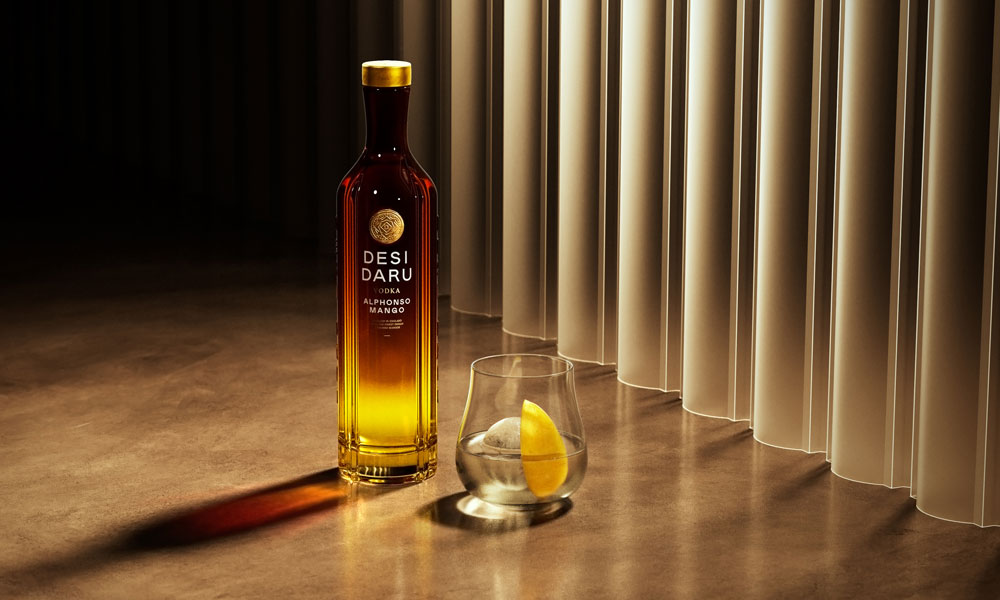
And finally, continuing the fruit theme, is Desi Daru Alphonso Mango (£45), an Anglo-Indian co production, created by two British-born Indian brothers, and distilled using English Winter Wheat with water from the snow-covered Himalayas. While it raises questions about carbon footprints, it’s a very fine, smooth (seven times distilled), luxurious vodka, and the Alphonso Mango flavour is spot on.

